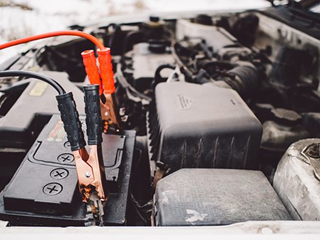The Power of Batteries: How and Why They Matter
Modern life is entirely dependent
on batteries, which run everything from our smartphones and computers to
electric cars and alternative energy sources. However, how do batteries
function and why are they so crucial? We'll look at the science of batteries
and some of their various uses in this blog post.
What is a battery?
A battery is basically a device that stores,
and provides energy as needed. An ordinary battery is made up of one or more
cells, each of which has two electrodes: a positive electrode (well known as
the cathode) and a negative electrode (also known as the anode), separated by
an electrolyte. When a battery cell is connected to a circuit, an internal
chemical process causes electrons to flow from the negative to the positive
electrode. This flow of electrons creates an electrical current that can be
used to power devices.
How do batteries work?
Depending on their chemical
makeup, different types of batteries operate in various ways. Several popular
battery types include: The most typical household battery is an alkaline
battery, which is frequently used in torches, toys, and remote controls. Its active
ingredients are zinc and manganese dioxide, and its electrolyte is potassium
hydroxide. Many modern products, such as electric cars, laptops, and
smartphones, employ lithium-ion batteries. They utilize a non-aqueous
electrolyte and lithium ions as its active ingredients. Lead-acid batteries are
frequently found in cars, trucks, and other types of vehicles, as well as
backup power systems. Its active ingredients are lead and lead dioxide, and its
electrolyte is sulfuric acid.
Lithium-ion batteries have essentially taken the
place of nickel-cadmium batteries, which were once commonly employed in
portable gadgets. They make use of potassium hydroxide as their electrolyte,
nickel oxide hydroxide as their positive electrode and cadmium as their
negative electrode.
Each of these battery kinds has a distinct chemistry
that influences its capacity (the quantity of energy it can hold), voltage (the
force with which the electricity is pushed through the circuit), and lifespan
(how long it can be used before it needs to be replaced).
What makes batteries so crucial?
Batteries are essential in
modern environments even though they power a wide range of tools and equipment.
To mention a few, battery packs are essential for the following reasons:
Batteries allow us to power portable electronics
such as mobile phones, laptops, and tablets when we are on the go. These
devices would always need to be plugged into an outlet if they didn't have
batteries.
Batteries are crucial parts of renewable energy systems like solar panels and wind turbines. Even when the sun isn't shining or the wind stops blowing, we can still use the energy generated by these sources.
Batteries electric drive vehicles, allowing them to
travel without the need for gasoline or diesel fuel. As the use of electric
vehicles grows, batteries will become more important in reducing greenhouse gas
emissions and improving air quality.
Backup power: Battery packs can be used as backup power sources in the event of a power outage or other emergency. When the electricity goes out, they keep vital equipment like hospitals, data centers, and emergency response systems running.
Conclusion
Batteries are vital to modern
life, going to power everything from small electronic devices to large
renewable energy systems. By recognizing how batteries work and their many
apps, we can appreciate the significant role they play in our lives and keep
creating fresh and improved battery techniques for the future.




Comments
Post a Comment